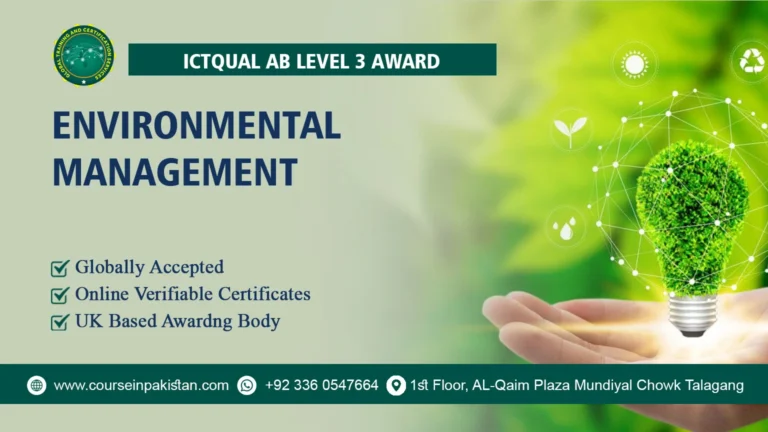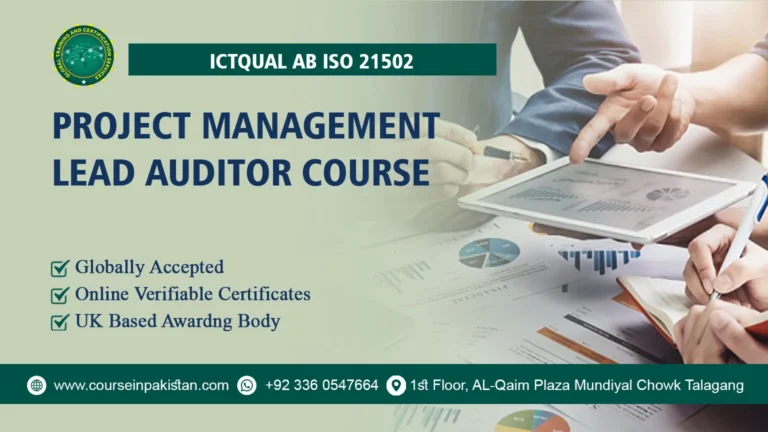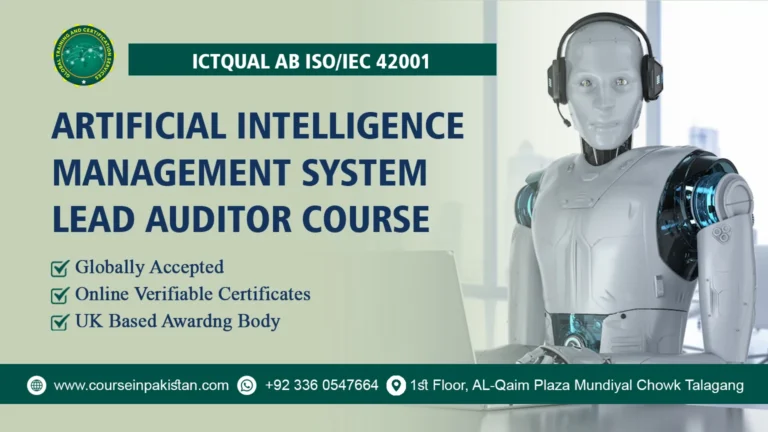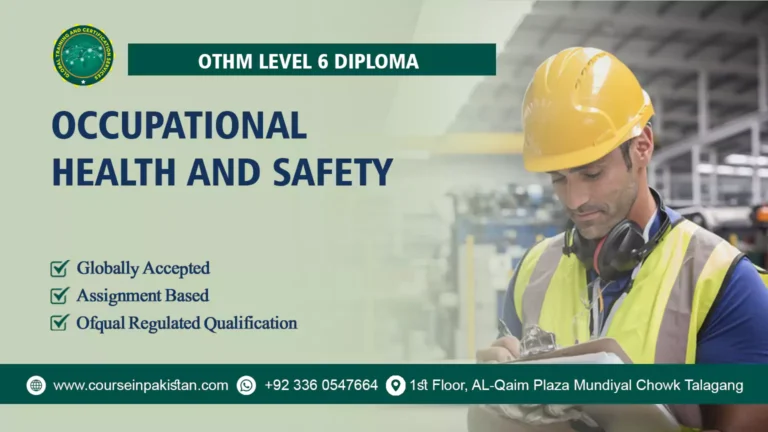
Through a blend of theoretical frameworks and real-world applications, learners will explore key areas such as sustainable construction practices, modern project management methodologies, contract administration, and construction technology. The diploma also emphasizes leadership, strategic decision-making, and innovation, preparing graduates for senior roles within the construction and infrastructure sectors. By completing this qualification, learners will be positioned to advance their careers, contribute to sustainable development, and drive excellence in construction management at both national and international levels.
The ICTQual AB Level 6 International Diploma in Construction Management is designed for professionals and aspiring leaders who want to excel in managing complex construction projects in a global context. This advanced qualification provides learners with a comprehensive understanding of construction processes, project planning, cost control, safety management, and regulatory compliance. With the construction industry becoming increasingly dynamic and competitive, this program equips learners with the knowledge and practical skills to lead teams, manage risks, and deliver projects that meet both client expectations and international standards.
Course Overview
The ICTQual AB Level 6 International Diploma in Construction Management is a globally recognized qualification designed to equip learners with advanced knowledge and practical skills in construction project planning, execution, and leadership. This 360-credit, fully assignment-based program allows students to study flexibly at their own pace from anywhere in the world. Fresh learners are required to complete all 36 mandatory assignments within three years, gaining expertise in areas such as project management, cost control, risk assessment, safety compliance, and sustainable construction practices.
For experienced and competent professionals, the diploma offers an accelerated pathway. Candidates with at least six years of verifiable experience can achieve the qualification faster by demonstrating their knowledge and skills through professional discussion meetings with an ICTQual AB Approved assessor, without completing all mandatory assignments. This qualification is British Council verificable, MOFA and Embassy attestable, making it ideal for career advancement, international employment, and iqama approval. The ICTQual AB Level 6 International Diploma in Construction Management prepares learners for senior roles in construction management, strategic planning, and leadership across global construction and infrastructure projects.
Key Highlights of the Course:
- Comprehensive focus on project management, construction law, and cost control.
- Emphasis on sustainability, safety, and modern construction technologies.
- Practical application through real-world case studies and industry best practices.
- Prepares learners for senior leadership roles in construction and infrastructure sectors.
- Internationally recognized qualification supporting global career opportunities.
Course Benefits
Global Recognition
- Gain an internationally respected qualification in construction management.
- Access career opportunities in the global construction and infrastructure sector.
Advanced Knowledge & Skills
- Develop expertise in project planning, budgeting, contract administration, and risk management.
- Learn modern construction technologies and sustainable practices.
Leadership Development
- Build the ability to lead diverse teams and manage large-scale projects effectively.
- Enhance decision-making skills in high-pressure construction environments.
Career Progression
- Progress into senior roles such as Construction Manager, Project Director, or Operations Leader.
- Strengthen your profile for consultancy, management, or leadership positions worldwide.
Practical Application
- Apply learning through real-life scenarios, industry-based assignments, and case studies.
- Gain practical insights to improve construction processes and ensure compliance with international standards.
Course Study Units
This qualification, the ICTQual AB Level 6 International Diploma in Construction Management, consists of 36 mandatory units.
Year 1 – Foundations of Construction Management
- Principles of Construction Management
- Construction Materials, Methods, and Technology
- Construction Law, Compliance, and Regulatory Frameworks
- Site Management and Supervision
- Health, Safety, and Environmental Management
- Fundamentals of Project Planning and Scheduling
- Cost Estimation and Budgeting in Construction
- Business Communication and Professional Reporting
- Introduction to Civil Engineering Principles
- Digital Tools and IT for Construction Projects
- Quality Control and Assurance in Construction
- Research and Data Analysis for Construction Studies
Year 2 – Applied Practices in Construction Management
- Advanced Project Planning and Control
- Construction Contracts and Procurement Management
- Human Resource Management in Construction
- Risk Management in Construction Projects
- Construction Economics and Financial Management
- Sustainable Construction and Environmental Practices
- Construction Equipment and Site Logistics
- Supply Chain and Vendor Management in Construction
- Quality Auditing and Continuous Improvement
- Construction Project Leadership and Team Development
- Case Studies in Construction Management
- Applied Research in Construction Operations
Year 3 – Advanced Strategic Construction Leadership
- Strategic Construction Project Management
- Advanced Construction Law and International Regulations
- Digital Construction and Smart Technologies
- Crisis and Disaster Management in Construction
- Global Construction Markets and Opportunities
- Leadership and Organisational Change in Construction
- Infrastructure Development and Mega Projects
- Performance Measurement and Benchmarking in Construction
- Ethics, Corporate Governance, and Sustainability in Construction
- Innovation and Change Management in Construction
- Advanced Research Methods in Construction Management
- Dissertation / Final Research Project in Construction Management
Learning Outcomes
Year 1 – Foundations of Construction Management
Principles of Construction Management
- Understand the fundamental principles and functions of construction management.
- Apply management concepts to construction operations and project delivery.
- Evaluate the role of managers in ensuring efficiency and quality in projects.
Construction Materials, Methods, and Technology
- Identify key construction materials, methods, and technologies used in the industry.
- Apply appropriate material and technological solutions to construction projects.
- Evaluate the sustainability and performance of construction methods.
Construction Law, Compliance, and Regulatory Frameworks
- Understand legal principles and compliance requirements in construction.
- Apply regulatory frameworks to ensure safe and lawful project delivery.
- Evaluate the impact of laws and regulations on project management decisions.
Site Management and Supervision
- Understand the roles and responsibilities of site managers and supervisors.
- Apply site management techniques to control daily operations effectively.
- Evaluate strategies to maintain safety, quality, and efficiency on-site.
Health, Safety, and Environmental Management
- Understand health, safety, and environmental requirements in construction.
- Apply best practices for risk assessment and accident prevention.
- Evaluate sustainability measures in construction project environments.
Fundamentals of Project Planning and Scheduling
- Understand project planning principles and scheduling techniques.
- Apply project management tools such as Gantt charts and CPM.
- Evaluate project schedules for accuracy, efficiency, and feasibility.
Cost Estimation and Budgeting in Construction
- Understand the principles of cost estimation and budget control.
- Apply costing techniques to manage resources and project finances.
- Evaluate budget reports to support decision-making in construction projects.
Business Communication and Professional Reporting
- Develop professional communication skills relevant to construction management.
- Prepare accurate reports, proposals, and technical documentation.
- Present information effectively to clients and stakeholders.
Introduction to Civil Engineering Principles
- Understand basic civil engineering concepts relevant to construction projects.
- Apply engineering principles to support project planning and execution.
- Evaluate structural considerations in construction management contexts.
Digital Tools and IT for Construction Projects
- Understand the role of IT and digital tools in modern construction management.
- Apply project management software and BIM technologies effectively.
- Evaluate the benefits of digital integration for project efficiency.
Quality Control and Assurance in Construction
- Understand the importance of quality control and assurance in construction.
- Apply methods to monitor, inspect, and improve construction processes.
- Evaluate quality outcomes against project and regulatory standards.
Research and Data Analysis for Construction Studies
- Understand basic research methodologies applicable to construction studies.
- Apply data analysis tools to investigate construction problems.
- Present research findings to support evidence-based project decisions.
Year 2 – Applied Practices in Construction Management
Advanced Project Planning and Control
- Understand advanced tools and techniques for project scheduling and control.
- Apply monitoring systems to track construction progress.
- Evaluate strategies to address delays and resource constraints.
Construction Contracts and Procurement Management
- Understand principles of contracts and procurement in construction.
- Apply procurement processes to ensure timely project delivery.
- Evaluate contractual obligations and dispute resolution methods.
Human Resource Management in Construction
- Understand HRM practices in the construction sector.
- Apply strategies for workforce planning, motivation, and performance.
- Evaluate HRM’s role in achieving organizational and project goals.
Risk Management in Construction Projects
- Understand risk identification and assessment methods in construction.
- Apply risk management frameworks to minimize project disruptions.
- Evaluate the effectiveness of risk response strategies.
Construction Economics and Financial Management
- Understand economic principles and financial controls in construction.
- Apply budgeting, forecasting, and cost control methods.
- Evaluate financial reports to support project sustainability.
Sustainable Construction and Environmental Practices
- Understand sustainable practices and their importance in construction.
- Apply environmentally friendly approaches to reduce project impact.
- Evaluate long-term benefits of sustainable construction strategies.
Construction Equipment and Site Logistics
- Understand the role of equipment and logistics in site operations.
- Apply equipment management and logistics planning techniques.
- Evaluate site operations for efficiency and cost-effectiveness.
Supply Chain and Vendor Management in Construction
- Understand supply chain structures in construction projects.
- Apply vendor selection and evaluation strategies.
- Evaluate supply chain risks and quality assurance processes.
Quality Auditing and Continuous Improvement
- Understand auditing processes in construction quality systems.
- Apply auditing techniques to monitor compliance.
- Develop continuous improvement strategies for long-term success.
Construction Project Leadership and Team Development
- Understand leadership roles and responsibilities in construction projects.
- Apply strategies to manage and motivate diverse project teams.
- Evaluate the impact of leadership on project outcomes.
Case Studies in Construction Management
- Analyze real-world case studies to identify best practices in construction.
- Apply lessons learned to improve project performance.
- Evaluate case outcomes to develop problem-solving strategies.
Applied Research in Construction Operations
- Understand applied research methodologies for construction operations.
- Conduct research projects to address operational challenges.
- Present research findings with practical recommendations.
Year 3 – Advanced Strategic Construction Leadership
Strategic Construction Project Management
- Understand strategic principles for large-scale construction projects.
- Apply project management strategies to achieve long-term goals.
- Evaluate the role of strategy in delivering organizational growth.
Advanced Construction Law and International Regulations
- Understand complex legal and regulatory issues in global construction.
- Apply compliance frameworks to international project delivery.
- Evaluate the role of law in dispute management and risk mitigation.
Digital Construction and Smart Technologies
- Understand the use of digital and smart technologies in construction.
- Apply BIM, AI, and IoT to optimize project delivery.
- Evaluate the impact of digital transformation on construction practices.
Crisis and Disaster Management in Construction
- Understand crisis management frameworks for construction projects.
- Apply business continuity planning in disaster situations.
- Evaluate the resilience of construction systems under crisis conditions.
Global Construction Markets and Opportunities
- Understand trends and opportunities in global construction markets.
- Apply market analysis to identify international opportunities.
- Evaluate the challenges of operating in a global construction environment.
Leadership and Organisational Change in Construction
- Understand leadership’s role in managing organizational change.
- Apply change management strategies to construction settings.
- Evaluate outcomes of leadership-led change initiatives.
Infrastructure Development and Mega Projects
- Understand the dynamics of infrastructure and mega project delivery.
- Apply strategies for planning, funding, and managing large projects.
- Evaluate the risks and benefits of mega project development.
Performance Measurement and Benchmarking in Construction
- Understand performance measurement frameworks in construction.
- Apply benchmarking tools to assess project and organizational performance.
- Evaluate metrics for continuous performance improvement.
Ethics, Corporate Governance, and Sustainability in Construction
- Understand ethical frameworks and governance standards in construction.
- Apply sustainable principles to project and organizational practices.
- Evaluate governance strategies for long-term corporate success.
Innovation and Change Management in Construction
- Understand the role of innovation in construction improvement.
- Apply change management frameworks to integrate innovation.
- Evaluate the success of innovation strategies in project delivery.
Advanced Research Methods in Construction Management
- Understand advanced research methodologies for construction contexts.
- Apply qualitative and quantitative techniques to research projects.
- Evaluate research findings to support academic and professional practice.
Dissertation / Final Research Project in Construction Management
- Design and conduct an independent research project in construction.
- Apply advanced research methodologies to solve real-world challenges.
- Present original findings that contribute to construction management knowledge.
Who is This Course For?
Aspiring Construction Professionals
- Individuals aiming to build a career in construction management, project leadership, or infrastructure development.
- Those seeking to enter the global construction sector with recognized qualifications.
Mid-Career Professionals
- Professionals wishing to upgrade their skills and progress into senior management or supervisory roles.
- Employees seeking to broaden their expertise in project planning, site supervision, and strategic leadership.
Recent Graduates
- Graduates in construction, civil engineering, or related disciplines looking to specialize in management and project delivery.
- Learners who want to strengthen their employability and career opportunities in the construction industry.
Globally Focused Learners
- Professionals interested in international construction markets, sustainable practices, and smart technologies.
- Individuals who want to prepare for leadership roles in global infrastructure and mega projects.
Academically Driven Learners
- Learners intending to progress to postgraduate studies such as Level 7 Diplomas or Master’s degrees.
- Those aiming for further research and academic advancement in construction management or related fields.
Future Progression
- Progression to Level 7 Diplomas in Construction Project Management, Strategic Management, or Leadership.
- Eligibility for Master’s degree programs in Civil Engineering, Project Management, or Built Environment.
- Career advancement into senior-level roles such as Project Manager, Construction Director, or Infrastructure Development Consultant.
- Opportunities to work on international projects and global markets, including mega infrastructure and smart city initiatives.
Academic Pathways:
- Progression to Level 7 Diplomas in Construction Management, Project Management, or Strategic Leadership.
- Entry into Master’s degree programs in Construction Project Management, Civil Engineering, or Sustainable Built Environment.
- Opportunities to pursue an MBA with a Construction or Infrastructure specialism.
- Academic research pathways leading to a PhD or Doctorate in Construction, Engineering, or Built Environment.
Conclusion
The ICTQual AB Level 6 International Diploma in Construction Management is a comprehensive qualification designed to equip learners with advanced knowledge, skills, and leadership capabilities for the global construction industry. By combining technical expertise, legal and regulatory understanding, and strategic management skills, this diploma ensures graduates are prepared to lead complex projects and adapt to the challenges of a rapidly evolving construction landscape. With its strong academic and professional focus, the qualification serves as both a gateway to higher education and a direct pathway to senior leadership roles, making it an ideal choice for those aspiring to shape the future of the construction sector.





